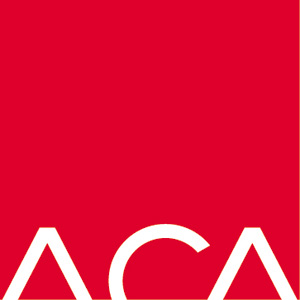Government Support for Business

The Federal Government and all state and territory governments in Australia have now responded to the COVID-19 outbreak with announcements of economic stimulus and assistance packages.
As the health crisis and economic situation continues to evolve, Federal and state governments have foreshadowed further targeted stimulus measures to assist businesses and individuals impacted. We will continue to update this document as new economic initiatives and plans are released.
Federal Government
JobKeeper Payment
On 30 March 2020, the Federal Government announced the JobKeeper payment, which offers a wage subsidy to businesses significantly impacted by COVID-19 to assist them to retain their staff. Employers can claim a fortnightly payment of $1,500 per eligible employee from 30 March 2020 for a maximum of six months.
Employers will be eligible for the subsidy if:
- their business has a turnover of less than $1 billion and their turnover will be reduced by more than 30% relative to a comparable period a year ago (of at least a month); or
- their business has a turnover of $1 billion or more and their turnover will be reduced by more than 50% relative to a comparable period a year ago (of at least a month); and
- the business is not subject to the Major Bank Levy.
Stimulus Package
On 22 March 2020, the Federal Government announced its second economic stimulus package, which will direct $66 billion worth of economic assistance to small and medium-sized businesses, retirees, and workers who have lost their jobs due to the impact of COVID-19. This builds on the government’s first economic package of $17.6 billion on 12 March 2020.
Key initiatives include:
Cash Flow Assistance for Businesses
On 12 March 2020, the Federal Government announced the Boosting Cash Flow for Employers measure, which offered payments of up to $25,000 to eligible small and medium sized businesses, with a minimum payment of $2000. This assistance has now been upgraded to $100,000 to small and medium sized businesses, and not-for-profits (NFPs, including charities) that employ people, with a minimum payment of $20,000.
These payments will assist with cash flow so businesses can remain operational, pay their bills and retain staff. The payment will be tax free. The measure is targeted to benefit around 690,000 businesses employing around 7.8 million people, and and around 30,000 NFPs (including charities).
Increasing the Instant Asset Write-off
The threshold has been raised from $30,000 to $150,000 and access expanded to include businesses with aggregated annual turnover of less than $500 million (up from $50 million). This applies from 12 March 2020 until 30 June 2020, for new or second‑hand assets first used or installed ready for use in this timeframe.
Accelerated Depreciation Deductions
Businesses with a turnover of less than $500 million will be able to deduct 50% of the cost of an eligible asset on installation, with existing depreciation rules applying to the balance of the asset cost. This 15-month investment incentive will apply to eligible assets acquired from 12 March 2020 and first used or installed by 30 June 2021.
Temporary Relief for Financially Distressed Businesses
In efforts to prevent otherwise profitable and viable businesses from closing their doors, the Federal Government will provide an additional safety net for financially distressed businesses. Elements of the package include the following:
- A temporary increase in the threshold at which creditors can issue a statutory demand on a company and the time companies have to respond to statutory demands they receive;
- A temporary increase in the threshold for a creditor to initiate bankruptcy proceedings, an increase in the time period for debtors to respond to a bankruptcy notice, and extending the period of protection a debtor receives after making a declaration of intention to present a debtor’s petition;
- Temporary relief for directors from any personal liability for trading while insolvent; and
- Providing temporary flexibility in the Corporations Act 2001 to provide targeted relief for companies from provisions of the Act to deal with unforeseen events that arise as a result of the Coronavirus health crisis.
Supporting the Flow of Credit
The Federal Government, the Reserve Bank of Australia and the Australian Prudential Regulation Authority have taken coordinated action to ensure the flow of credit in the Australian economy. Initiatives include a guarantee of 50% to SME lenders to support new short-term unsecured loans to SMEs; quick and efficient access to credit for small businesses; and a further easing in monetary policy with the RBA’s reduction of the cash rate to 0.25%.
Treasury Coronavirus Business Liaison Unit
A Coronavirus Business Liaison Unit has been established within The Treasury to engage with business on a regular basis and provide updates to government on crucial issues.
For full details of the economic package, including funding for apprentices and trainees, economic assistance for the airline industry, and economic stimulus targeted to the regions, see Treasury’s Economic Response to the Coronavirus.
State Governments
ACT Government
The ACT Government has announced a first phase economic survival package to support Canberra households and businesses, which includes a freeze on a number of ACT Government fees and charges, a $750 rebate for small business owners to help with power bills, and interest-free deferrals of payroll tax from 1 July 2020 for all businesses up to a payroll threshold of $10 million to ease cashflow pressures.
NT Government
The NT Government has launched a $65 million Jobs Rescue and Recovery plan to help stimulate the economy and keep Territorians in jobs. The package includes a Business Improvement Grant of up to $20,000 for businesses to purchase goods and services to make permanent physical improvements to their premises (land and/or buildings).
NSW Government
The NSW Government recently announced a $1.6 billion economic stimulus package. Initiatives include the waiver of payroll tax for businesses with payrolls of up to $10 million for the final quarter of the 2019–2020 financial year, estimated at $450 million; more than $250 million to bring forward maintenance on public assets including social housing and crown land fencing; and $500 million to bring forward capital works and maintenance.
On 3 April, the NSW Government announced further support for small businesses, with a Small Business Support Fund of $750 million to keep small businesses afloat with grants up to $10,000. To be eligible, businesses will need to have between 1-19 employees and a turnover of more than $75,000; a payroll below the NSW Government 2019-20 payroll tax threshold of $900,000; have an Australian Business Number as at 1 March 2020, be based in NSW and employ staff as at 1 March 2020; be highly impacted by the Public Health (COVID-19 Restrictions on Gathering and Movement) Order 2020 issued on 30 March 2020; and use the funding for unavoidable business costs such as utilities, overheads, legal costs and financial advice.
Queensland Government
The Queensland Government has announced a new $500 million loan facility, interest free for the first 12 months, to support Queensland businesses impacted by COVID-19. The concessional loan facility would comprise loans of up to $250,000 with an initial 12-month interest-free period to assist businesses to retain employees. A tax relief package is also available for Queensland businesses that have been affected by COVID-19, with the ability to defer paying payroll tax returns until 31 July 2020.
South Australian Government
The South Australian Government recently announced an economic stimulus package worth $350 million to help drive the local economy and secure jobs. The stimulus package includes road and hospital upgrades, new tourism infrastructure and an expanded Economic and Business Growth Fund to support local industry. The Government will also work with councils to deliver $50 million of local projects that will support local jobs and local businesses.
Tasmanian Government
The Tasmanian Government has announced a $420 million support and stimulus package, which will target assistance to businesses and the workforce. Initiatives include the waiver of payroll tax payments for the last quarter of the financial year for small to medium businesses impacted by COVID-19 with an annual payroll up to $5 million, a $50 million government maintenance program, and additional funding for Human Resources and Industrial Relations assistance for businesses relating to COVID-19.
Victorian Government
The Victorian Government has announced a $1.7 billion three-stage assistance package. The first stage consists of $550 million of payroll tax refunds for the first three quarters of the financial year for 24,000 small and medium-sized businesses with a payroll of less than $3 million. Payroll tax for the fourth quarter will be waived for these businesses. A further $500 million is going into a Business Support Fund to assist small to medium businesses most impacted by the COVID-19 outbreak.
Western Australian Government
On 16 March, the Western Australian Government announced a $114 million relief package to support small business during the COVID-19 pandemic. The three measures announced for small business include: $17,500 grants for small businesses with a payroll between $1 million and $4 million; the $1 million payroll tax threshold (announced in October 2019) will be brought forward by six months to 1 July 2020; and payroll tax deferrals for the last quarter of the financial year for businesses impacted by COVID-19. On 31 March the payroll tax deferral was replaced with an initiative to waive payroll tax for four months for business with annual wages under $7.5 million.
Additional measures were added to the Small Business Stimulus/Relief Package on 31 March 2020:
- One-off $2,500 credit on electricity bills for small businesses that consume less than 50MWh per annum. For more information read the statements on the Synergy and Horizon Power websites.
- Power and water disconnections will not occur and interest will not be charged on deferred payments until 30 September for small businesses facing financial difficulty due to COVID-19. Please note: This applies to Synergy and Horizon Power customers.
- Affected businesses can apply for interest free payment arrangements and for late payment penalties to be waved for a range of taxes and duties, including payroll tax, transfer duty, landholder duty, vehicle licence duty or land tax.
- A range of business licence fees have been waived, including liquor licence renewal fees for 2020, which will be waived and refunds given to businesses that have already paid.
Australian Banking Association (ABA)
Small Business Relief Package
On 20 March 2020, the Australian Banking Association (ABA) announced that all small businesses affected by the coronavirus pandemic will be able to access a six-month deferral of all loan repayments, potentially applying to more than $100 billion in small business loans.
Financial Hardship
The Australian Banking Association has a useful page of financial hardship information and contact numbers for the hardship teams of 22 banks. Assistance could include deferring loan payments, waiving fees and charges, helping with debt consolidation, waiving penalties for early withdrawal of a term deposit, or deferring upcoming credit card payments and increasing emergency limits.
